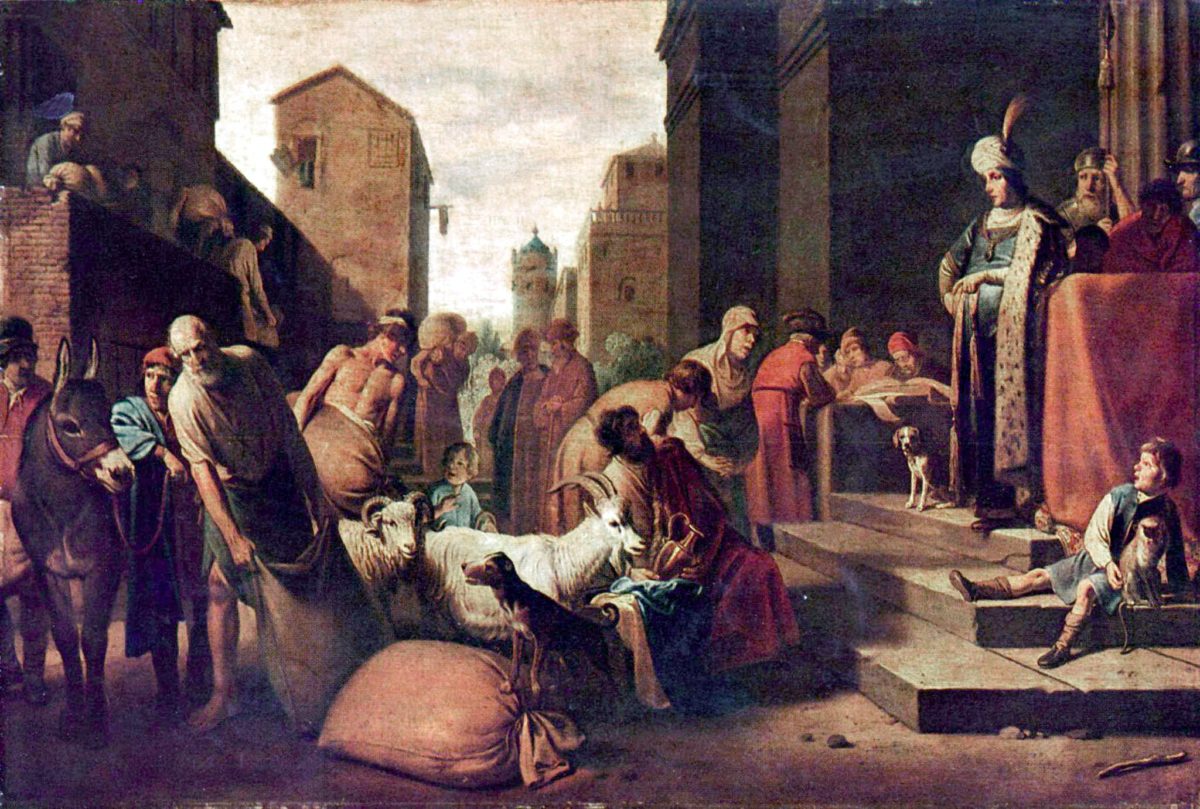 InterVarsity graduate staffer and frequent ESN blog contributor Mark Hansard applies ideas from the life of Joseph to the calling of Christian academics. For reflections by Mark on the fruit of the Spirit in academia, see his series: Part 1, Part 2, Part 3. For other work by Mark, including literary reflections and faith/science interviews, see this link.
InterVarsity graduate staffer and frequent ESN blog contributor Mark Hansard applies ideas from the life of Joseph to the calling of Christian academics. For reflections by Mark on the fruit of the Spirit in academia, see his series: Part 1, Part 2, Part 3. For other work by Mark, including literary reflections and faith/science interviews, see this link.
The story of Joseph’s life, beginning in Genesis 37, offers us a number of lessons that can be applied to the academic world. As you recall, Joseph was the younger, but favorite son of Jacob. Jacob gave him a beautiful, multi-colored coat which he wore, making his brothers jealous. And Joseph told his brothers of dreams he had that they had bowed down to him and served him. The brothers decided to kill him, but threw him down a well instead, where he was picked up by a traveling band and sold into slavery (Gen. 37). He was taken to Egypt, and became an important slave in Potiphar’s household. Potiphar’s wife was attracted to him, and tried to get him to go to bed with her, but he refused. Since Potiphar’s wife lied about what happened, Joseph was put into prison (Gen. 39). He ended up in Pharaoh’s household, serving all of Egypt, because he was able to miraculously interpret dreams (Gen. 41). And then, because of a famine, his brothers came to Egypt to get food. After a time, Joseph revealed himself to them and forgave them for allowing him to be sold into slavery. He told them, “it was not you who sent me here, but God” (Gen. 42-45).
Pride—One lesson from Joseph’s life: refuse to give into pride. Joseph showed off his beautiful coat to his brothers and told them of his dreams that they were bowing down to him. He reaped a world of trouble from this, and we will too if we allow academic pride to swallow us whole. Some academics may be smarter than others or have larger IQs, but it is in their interest to keep this information to themselves. Some are overly critical of colleagues, or hold up an impossibly high standard for graduate students to reach. Again, it’s in our best interest not to alienate others over miniscule matters. I am not saying to compromise academic integrity, but just to be wise about criticizing others. Is this critique really necessary? Is it a point upon which the paper truly hinges? How much detail must be perfect before it’s ready for publication?
Integrity—Joseph famously maintained his integrity with Potiphar’s wife when he refused to go to bed with her, even though he was a slave and such a refusal was dangerous. “How could I do such a wicked thing and sin against God?” he said (Gen. 39:9). And we too, when under tremendous pressure, must keep our integrity. It can be very tempting to fudge experimental results when grants are on the line. It can also be tempting to be overly critical of a competitor, hoping that people will see our own work in a better light. But this is not something that pleases the Lord. We must maintain our integrity, even under financial and competitive pressure.
Forgiveness—In an amazing way, Joseph forgave his brothers for selling him into slavery. He believed that it was God, not his brothers, who had sent him to Egypt. This is truly a supernatural act of forgiveness, and one that sees God’s providence as the main force behind one’s life, not the malicious acts of others. Forgiveness on this level is necessary in the academic world as well. When one has been refused tenure for spurious reasons, it’s truly a supernatural act to forgive and see God’s providence behind it. As well, when the Ph.D. dissertation is rejected, we must forgive, even if the critique is unfair. Both of these devastating circumstances happen all too often in academia. Only God can give us the power from within to forgive under these conditions, but we are called by him to do so. And Joseph can serve as a great inspiration for us.
Joseph’s life offers us many lessons that can help us lead a wise life if we take them to heart. May God give us the power to make it so.
Image credit: Moeyaert, Claes Cornelisz, 1592 or 3-1655. Joseph’s Brothers return with the Cup, from Art in the Christian Tradition, a project of the Vanderbilt Divinity Library, Nashville, TN.http://diglib.library.vanderbilt.edu/act-imagelink.pl?RC=47003 [retrieved January 21, 2017]. Original source: htpp://www.yorckproject.de.
Mark is on staff with InterVarsity Christian Fellowship in Manhattan, Kansas, where he ministers to Faculty at Kansas State University and surrounding campuses. He has been in campus ministry 25 years, 14 of those years in faculty ministry. He has a Master’s degree in philosophy and theology from Talbot School of Theology, La Mirada, CA, and is passionate about Jesus Christ and the life of the mind. Mark, his wife and three daughters make their home in Manhattan.

Leave a Reply